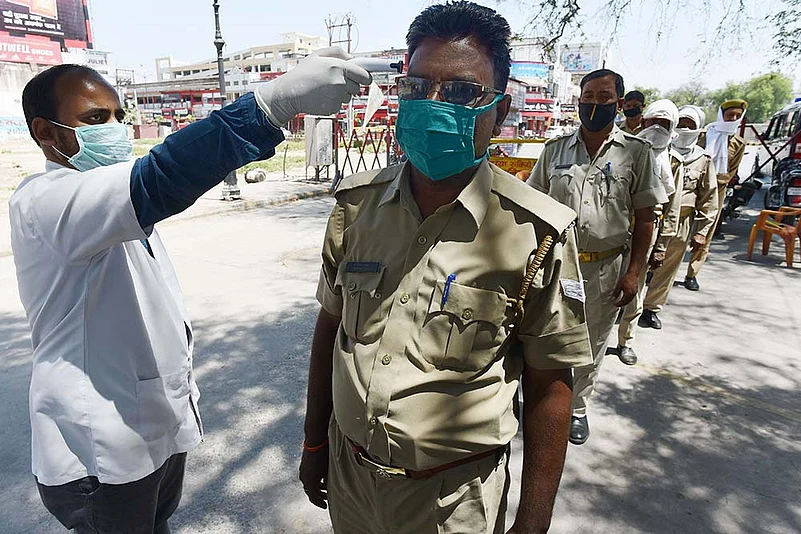The COVID-19 scare has led to a lot of confusion over the first line of defence: face masks.
Even as hospitals and healthcare personnel on the frontline struggle to source proper respirators and medical masks, there are many who have bought or stocked up on these without really needing them. Others wear surgical or even home-made masks without really knowing how or when to use them. Even the best face masks are often worn and disposed of incorrectly, and many of the masks available are counterfeits.
As if that wasn’t enough, there were reports that China had sent a batch of face masks to its all-weather friend Pakistan made of underwear, while a man selling masks at traffic signals in Delhi before the lockdown proudly admitted that his masks were made by a local bra manufacturer who just cut them in two and attached straps to them. And then we have US President Donald Trump, who while urging fellow Americans to use masks, refuses to don one himself.
Face masks being used for protection against the virus are generally of three kinds.
The N95 respirator: Meant for people working with COVID-19 cases. (Doctors, paramedics, or health or police officials) These tight-fitting masks filter out splashes, sprays, and large droplets, and very small particles including viruses and bacteria. However, these masks are useless if worn incorrectly, and need to be fit-tested after wearing to ensure a proper seal. They are also extremely uncomfortable and hot if used for long periods. Some types have an exhalation valve, which can help with breathing and eases the buildup of heat and humidity. They are definitely not meant for the common man.
The surgical mask: These are flat, loose-fitting, disposable face masks that cover your nose, mouth, and chin. They protect the wearer from sprays, splashes, and large-particle droplets, and also prevent infected people from spreading the virus to others through his or her respiratory secretions. Elastic bands or ties at either end can be looped behind your ears or tied behind your head. However, they cannot protect against the SARS-CoV-2 because they cannot filter out smaller aerosol particles, and air leakage occurs through the sides of the mask as you inhale. Do not re-use them.
Home-made or off the shelf masks: These are made of various materials ranging from cloth to paper to plastic. Due to the scarcity of masks worldwide, many people have begun making their own using scarves, dupattas, handkerchiefs, pillow cases, and yes, even underwear, or buying substandard ones from people trying to make a quick buck from the crisis. While these may offer some degree of solace, they offer a lot less protection than surgical masks or respirators.
According to the WHO:
- If you are healthy, you only need to wear a mask if you are taking care of a person with suspected 2019-nCoV infection.
- Wear a mask if you are coughing or sneezing.
- Masks are effective only when used in combination with frequent hand-cleaning with alcohol-based hand rub or soap and water.
- If you wear a mask, then you must know how to use it and dispose of it properly.
However, just to be on the safe side, do wear some kind of a mask (even a folded kerchief wrapped tightly around your lower face works) if you are out in a public place or in an area which has witnessed some cases of COVID-19 infections. Remember to clean your hands both before and after using any of these masks.
Apart from masks, there are other effective ways to prevent a COVID-19 infection.
Here are some:
- Wash your hands frequently using soap and water or an alcohol-based hand sanitizer.
- Avoid touching your face, nose, eyes unless you have very clean hands.
- Practice social distancing, even among your loved ones.
- Avoid contact with people who are sick. Stay at home if there are COVID-19 cases in your neighbourhood, or if you show signs of an infection. Wear a surgical mask if one is available.
There’s currently a massive shortage of masks for healthcare workers and first responders. If you have unused respirators or surgical face masks, please donate them to your nearest hospital or health service providers. They need it far more than you do.
















